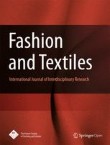Influenced by technical innovation and concerns around ethicality and sustainability, and accelerated by the Covid-19 pandemic, fashion as a commercial enterprise faces existential challenges. Seismic shifts in consumer attitudes and behaviour, the evolution of brand-consumer relationships and disruptions to the fundamental structure of the global fashion system are challenging fashion businesses and professionals to radically adapt their policies and practices. In turn, being at the heart of commercial and technical innovation, of social and political change, gives the fashion business an opportunity to drive transformation far beyond the shape, cut and colour of clothing. The aim of this special issue is to provide a platform for the study of emergent challenges and their solutions within the fashion system. Encapsulating (but not exclusive to) the impact on fashion consumption of evolving consumer lifestyles and beliefs, through the application of new technologies throughout fashion design, distribution and promotion, to the response by fashion businesses to the challenges of the pandemic, the special issue will provide a contemporary snapshot of a moment of critical change within the fashion and textile industry.
Please give a short list of topics of interest:
Emergent changes in fashion consumer attitudes, lifestyles, and behaviours:
- The impact of environmental and ethical awareness on fashion consumer lifestyles and their impact on fashion businesses.
- Attitudes and behaviour toward fashion in response to confronting generational, political, and social issues including gender, sexuality, race and religion.
- Fashion consumer behaviour, and promotion, in an all-digital world.
Integration of emergent technologies within fashion design, distribution and promotion:
- The role of big data, data mining, and AI in fashion product development, merchandising, and promotion.
- Applications of blockchain within fashion manufacturing and distribution, and its role in traceability, transparency, and product authenticity.
- The integration of augmented/extended/virtual realities within fashion consumption, particularly in retail environments and digital workplaces.
Impact of the pandemic on the fashion system across sourcing, manufacturing, retail, consumption and disposal:
- The effect of pandemic shocks on fashion and textile sourcing, manufacturing and distribution globally and locally.
- Quantifying the impacts, positive and negative, of social distancing and travel restrictions on fashion retail, physical and digital.
- Myths and realities of fashion manufacturing and retail localisation in Europe, the Americas and the Asia Pacific regions.
Guest Editor
Dr. Stephen Wigley, RMIT University, stephen.wigley@rmit.edu.au
Manuscript submissions due
February 28, 2023
Before submitting your manuscript, please ensure you have carefully read the submission guidelines for Fashion and Textiles (https://fashionandtextiles.springeropen.com/submission-guidelines). The complete manuscript should be submitted through the Fashion and Textiles submission system (https://www.editorialmanager.com/ftex/default.aspx). To ensure that you submit to the correct thematic series please select the appropriate thematic series in the drop-down menu upon submission. In addition, indicate within your cover letter that you wish your manuscript to be considered as part of the thematic series. All submissions will undergo rigorous peer review and accepted articles will be published within the journal as a collection.
Submissions will also benefit from the usual advantages of open access publication:
- Rapid publication: Online submission, electronic peer review and production make the process of publishing your article simple and efficient.
- High visibility and international readership in your field: Open access publication ensures high visibility and maximum exposure for your work - anyone with online access can read your article
- No space constraints: Publishing online means unlimited space for figures, extensive data and video footage
- Authors retain copyright, licensing the article under a Creative Commons license: articles can be freely redistributed and reused as long as the article is correctly attributed.
